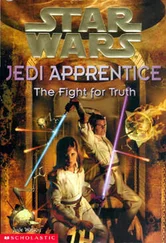Rowland Walker - Under Wolfe's Flag; or, The Fight for the Canadas
Здесь есть возможность читать онлайн «Rowland Walker - Under Wolfe's Flag; or, The Fight for the Canadas» — ознакомительный отрывок электронной книги совершенно бесплатно, а после прочтения отрывка купить полную версию. В некоторых случаях можно слушать аудио, скачать через торрент в формате fb2 и присутствует краткое содержание. Издательство: Иностранный паблик, Жанр: Детская проза, История, foreign_antique, foreign_prose, foreign_children, на английском языке. Описание произведения, (предисловие) а так же отзывы посетителей доступны на портале библиотеки ЛибКат.
- Название:Under Wolfe's Flag; or, The Fight for the Canadas
- Автор:
- Издательство:Иностранный паблик
- Жанр:
- Год:неизвестен
- ISBN:нет данных
- Рейтинг книги:3 / 5. Голосов: 1
-
Избранное:Добавить в избранное
- Отзывы:
-
Ваша оценка:
- 60
- 1
- 2
- 3
- 4
- 5
Under Wolfe's Flag; or, The Fight for the Canadas: краткое содержание, описание и аннотация
Предлагаем к чтению аннотацию, описание, краткое содержание или предисловие (зависит от того, что написал сам автор книги «Under Wolfe's Flag; or, The Fight for the Canadas»). Если вы не нашли необходимую информацию о книге — напишите в комментариях, мы постараемся отыскать её.
Under Wolfe's Flag; or, The Fight for the Canadas — читать онлайн ознакомительный отрывок
Ниже представлен текст книги, разбитый по страницам. Система сохранения места последней прочитанной страницы, позволяет с удобством читать онлайн бесплатно книгу «Under Wolfe's Flag; or, The Fight for the Canadas», без необходимости каждый раз заново искать на чём Вы остановились. Поставьте закладку, и сможете в любой момент перейти на страницу, на которой закончили чтение.
Интервал:
Закладка:
"Indeed, we could, sir, and we're willing to pay for it."
"Tut! tut! Come into the house, then." And the kindly old man led them to the farmhouse, where his wife simply said, "Puir lads," and soon provided for them a substantial meal.
A large steaming basin of oatmeal porridge was soon laid before each of them, made from rich milk, instead of water. They soon made short work of this. Then Jane brought in a plate of home-made cakes, well-buttered, but still their hunger did not abate one jot. The farmer was used to big appetites, and neither his wife nor Jane expressed any surprise. Then their host took out his huge clasp knife and cut several rashers from a flitch of bacon that hung suspended from the ceiling. These were fried along with a few eggs, and when they had cleared this third dish, the keen edge was taken from their appetites, and they declared that they were satisfied.
They thanked the farmer for his great kindness, and asked him how much they were indebted to him, but when they offered to pay, he held up both hands, and exclaimed–
"Not a penny! Keep your money. You'll want it all before long. It does me good to see lads with pluck like yours. Maybe you'll get further than I did. I think you're made of different stuff, and I ha' quite ta'en a fancy to you. While we've lads like you, we shall never want men to fight the Frenchers."
"I have a brother fighting under Clive now, in India!" exclaimed Jack, with a touch of family pride.
"Oh, maybe you're Squire Elliot's son, then!"
At this Jack's face fell, for he saw that he had well-nigh given away his identity.
"Ah well, never mind! Perhaps ye did not get on very well with the old squire. He was a harder man after your poor mother died."
The mention of his mother gave Jack a twinge of pain, and caused a lump to rise in his throat. His mother's early death had removed his guardian angel. Perhaps he would have been a better lad if she had lived; more tame and docile, like other boys.
"Puir lad!" exclaimed the farmer's wife; "and has he no mother then? He ma' weel run away."
Jack's tears were very near the surface, but he forced them back with an effort, for he considered it a great weakness to give way to his feelings.
As they left the old farmhouse, yet another kindness was shown to them, for Jane, secretly bidden by the farmer's wife, had made up a bundle of substantial oat-cakes, with a large piece of cheese, and as they passed out of the door she handed it to them.
This last act of kindness to these two poor motherless lads touched their hearts as perhaps nothing else could have done. They had not been used to such kindness, and they expressed their gratitude, not by words, for they couldn't speak, but by the great, big tears that welled up in their eyes, despite their every effort to keep them back now. Ah! nothing penetrates a boy's heart like kindness.
The old farmer pointed out the way, across the moors, and over Lin-Crag–the way he had trodden fifty years ago, and soon they were climbing the steep hill-side, knee-deep in heather, and following the winding sheep tracks. Again and again they turned round to wave their handkerchiefs at the trio standing by the farm-yard gate now far beneath them, until at last, as they stood on the summit of the crag, the house looked like a little speck in the distance and soon disappeared.
Then they footed it gaily across the lonely blue moorlands. Sometimes they started a covey of young grouse, hidden amongst the heather; then the peewits wheeled around them, uttering plaintive cries, as though bidding them good-bye. The scenes of their childhood, and the landscape on which their infant eyes had first gazed, were now left behind. The little lambs frisked about playfully, or cropped the short, green patches of tough grass near the water-courses, while overhead the larks sang joyously, continuously, and the sun shone brilliantly down from that wide expanse of azure dome.
The lads sang, too, blithely, lustily, for nothing could repress that feeling that was bubbling up within them; they trod the earth lightly, for they were in the "Land of Havilah," which is the "Golden Land of Youth," where the sun is always shining, where all the visions and ideals are golden, the enthusiasm and the energy boundless. So life with all its charm was opening out to them, but what was that life to be?
"Let us halt beside this spring, Jamie, for we have come twelve miles since morning," said Jack, about an hour after mid-day.
So they rested awhile, and ate some of the oat-cakes, and drank at the spring, where commenced a little stream of clear water, which sang its way down to the sea. Soon they left the wild moorlands behind them, and descending the western slopes of the Pennines, they entered the county of Lancaster, and passed through several hamlets and villages, where the rude country people spoke a dialect which they could scarcely understand.
Towards evening their footsteps began to lag. They had long ago ceased to sing, or even to whistle. They were tired and footsore, and for the last hour they had trudged on in silence, for they were both very brave, and neither would confess fatigue.
That night they slept under a hayrick in the corner of a field. They slept soundly, too, but next morning they were up early, and after performing their ablutions, and cooling their blistered feet in a neighbouring pond, they finished the oat-cakes and cheese, and started again.
The first day they had covered nearly half the distance between their home and that rising little sea-port town of Liverpool, whose docks and wharves were now crowded with ships from every part of the globe. The second day, however, they were too footsore to travel half that distance, and they had to break into that golden guinea to buy food, but they still persisted and never spake one word about turning back, and in the afternoon of the fourth day their hearts beat with joy, as they reached the top of a little eminence, that is now part and parcel of the great city of Liverpool, but was then merely a country lane, and their eyes were gladdened by a first glimpse of the forest of masts and spars, that lay in the river beneath them, while out there–beyond the bar, where the breakers were rolling in by the lighthouse–was the sea.
"The sea! the sea!" they both exclaimed.
And in the transport of joy which followed, tired limbs and blistered feet were forgotten, for this was their first glimpse of the sea.
CHAPTER IV
THE WATCH IN THE FORE-TOP
Soon they were down by the Mersey's bank, at a spot where the famous landing-stage has since been erected. Then they passed along the wharves and docks, but recently constructed, where the big ships, with their towering masts and spars, came in to unload their valuable cargoes, for here were ships from the Levant and the Eastern Archipelagoes, from Spain and the West Indies, from the Canadas and the new colonies of America.
Never before had they seen such noble vessels, nor had they dreamt it possible that such leviathans could be built. Never before had they gazed upon such a vast concourse of people, rushing hither and thither, shouting, pushing, loading and unloading, as though every ship must catch the next tide that flowed.
Their hearts swelled with pride as they stood and watched a stately barque, fresh from the River Plate, being warped in to the bank and made fast. Some of her swarthy crew were aloft clewing up the sails, others were below, stowing away, making fast, or squaring the yards, singing snatches of songs, but all of them eager and longing to get ashore and to set foot in Old England again.
Oh, how they envied these men, who had sailed those far-away seas and seen those lands with strangely-sounding names, and islands that gleamed like gems set in the tropical seas. East, west, north and south met here with all their charm and romance, for then Liverpool was rapidly becoming an emporium for the sea-borne commerce of the world.
Читать дальшеИнтервал:
Закладка:
Похожие книги на «Under Wolfe's Flag; or, The Fight for the Canadas»
Представляем Вашему вниманию похожие книги на «Under Wolfe's Flag; or, The Fight for the Canadas» списком для выбора. Мы отобрали схожую по названию и смыслу литературу в надежде предоставить читателям больше вариантов отыскать новые, интересные, ещё непрочитанные произведения.
Обсуждение, отзывы о книге «Under Wolfe's Flag; or, The Fight for the Canadas» и просто собственные мнения читателей. Оставьте ваши комментарии, напишите, что Вы думаете о произведении, его смысле или главных героях. Укажите что конкретно понравилось, а что нет, и почему Вы так считаете.












